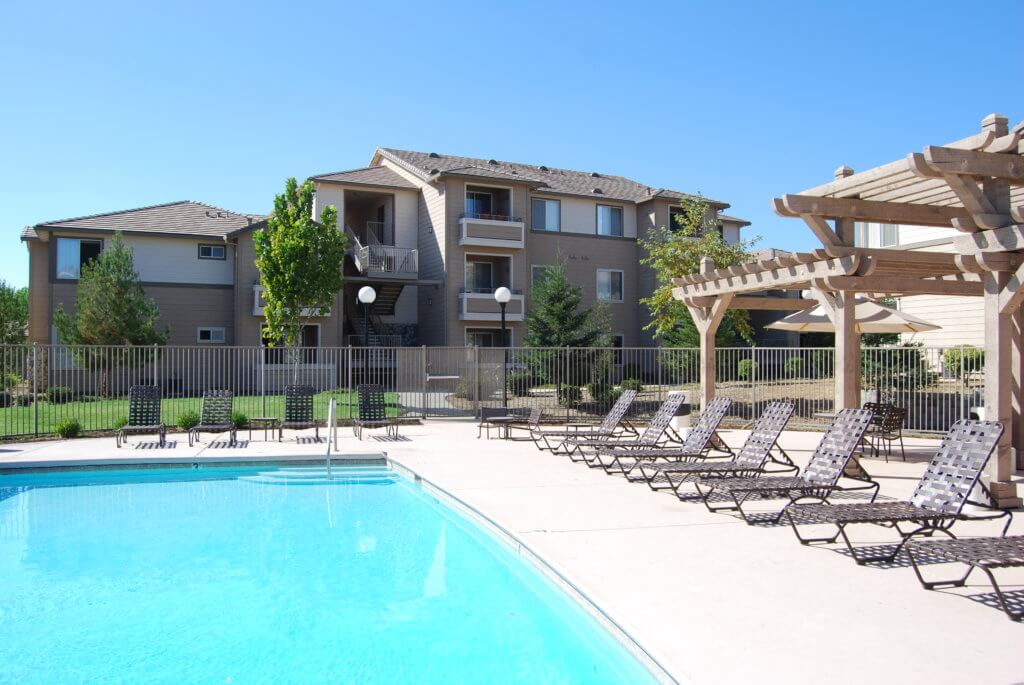Outdoor spaces are the heart and soul of any multifamily property during the warmer months. From residents tanning poolside to cozy nights beneath the bistro lights, summer brings your resident community outside, eager to experience all your property has to offer. Unfortunately, pests are also looking for some summertime fun, and your outdoor oasis may just check off all their boxes.
Taking proactive measures to help protect your outdoor amenities is essential to keeping summer pests from ruining the fun. Increased foot traffic is bound to attract a range of insects, from flies and cockroaches to mosquitoes and ants. There’s nothing worse than having pests crash the party and spoil the experience.
Which summer pests are most common around New England properties?

Summer can be a challenging season for apartment complex managers and residents. Why? Because it’s a season that brings an influx of pests that thrive in warmer weather. These pests not only cause inconvenience but can also pose significant health risks. Identifying and addressing these common summer pests early can help maintain a comfortable and safe living environment for everyone. Here are some of the most common pests you’ll encounter in apartment complexes during the summer months:
Flies
It may seem like a minor annoyance for your residents to shoo a fly from their outdoor picnic. But the truth is, flies are known to carry bacteria like Salmonella and E. coli. The key to keeping flies away is depriving them of the filth they crave. If residents are allowed to have food in your outdoor gathering areas, make sure spills and crumbs are cleaned up daily. Ensure drains stay cleaned to avoid build up, and trashcans should be emptied regularly and secured by tight-fitting lids. Keeping your dumpster area clean of debris is another simple way to help protect your outdoor areas from these pests.
Ticks
Ticks are common in New England and some species can be particularly harmful to residents. From Lyme Disease to Rocky Mountain spotted fever, you certainly don’t want these pests transmitting diseases across your property. Keeping grass cut low and trimming back any vegetation on your property’s exterior can help limit ticks. If you suspect you may have a tick issue, call your pest control professional for help.
Mosquitoes
Mosquitoes are a real buzz kill. Being someone’s feast is unpleasant to say the least, and the itching can drive you mad. But mosquitoes are also considered the world’s deadliest animals – let alone pests. Mosquitoes have the potential to spread diseases like Malaria, West Nile virus, and Eastern Equine Encephalitis, so mosquito protection is something to take seriously. Mosquitoes can breed in a thimble’s worth of standing water, so cleaning gutters regularly and dumping out standing water can help limit mosquito populations in your outdoor space.

Stinging Insects
Getting stung is on no one’s pool party itinerary, and for residents with allergies, stinging summer pests like yellow jackets and hornets are a serious threat. You can protect your outdoor spaces from stinging pests by limiting their access to flowers, water, and sweet foods and drinks. If you think they’ve built a nest, seek out the help of a pest control professional to have it safely removed.
Looking for a quick check list? Keep your cool all season long with these 4 summer pest control tips.
1. Keep it clean
Keeping your property clean is one of the most important ways to help prevent summer pests from moving in on your residents. Food draws stinging insects, ants, cockroaches, flies, and more, so remove used plates and glasses as soon as possible. Likewise, any spills need immediate attention.
2. Mind the garbage
Trash is one of the biggest attractants for summer pests like flies, rats, and cockroaches. In addition to rotating and cleaning your dumpsters, pay special attention to any trash cans in your outdoor spaces. Ensure they can be covered tightly and are emptied and cleaned regularly.
3. Trim and mow
Landscaping is a powerful tool in your fight against summer pests. Overgrown vegetation attracts pests from stinging insects to ticks – and can also serve as a bridge directly to your foundation – so trimming tree branches and shrubbery away from your building and keeping grass short with regular mowing are a must.
4. Stay dry
The amount of water in an upside-down bottle cap is all mosquitoes need to breed. We recommend staying extra vigilant about standing water. Seeking out and removing standing water around downspouts, flowerpots, and other outdoor décor is an easy way to keep these pests at bay.
Consult the Professionals
Staying proactive in your property’s pest control is a big job on top of all you and your employees are already doing to create a memorable experience for your residents. Calling in a professional to help create an Integrated Pest Management (IPM) plan, discover potential trouble spots, and help train you and your residents on how to keep your building pest-free.
In Massachusetts, Connecticut, Maine, Rhode Island, New Hampshire, New York, and Vermont, summers are short, making them more precious to people and pests alike. Consistent maintenance of your outdoor areas can help prevent your residents from being overrun by pesky summer pests. When it comes to summer pest control and protection, you can’t beat an experienced pest control provider to provide targeted, discrete, and proactive treatment when needed.